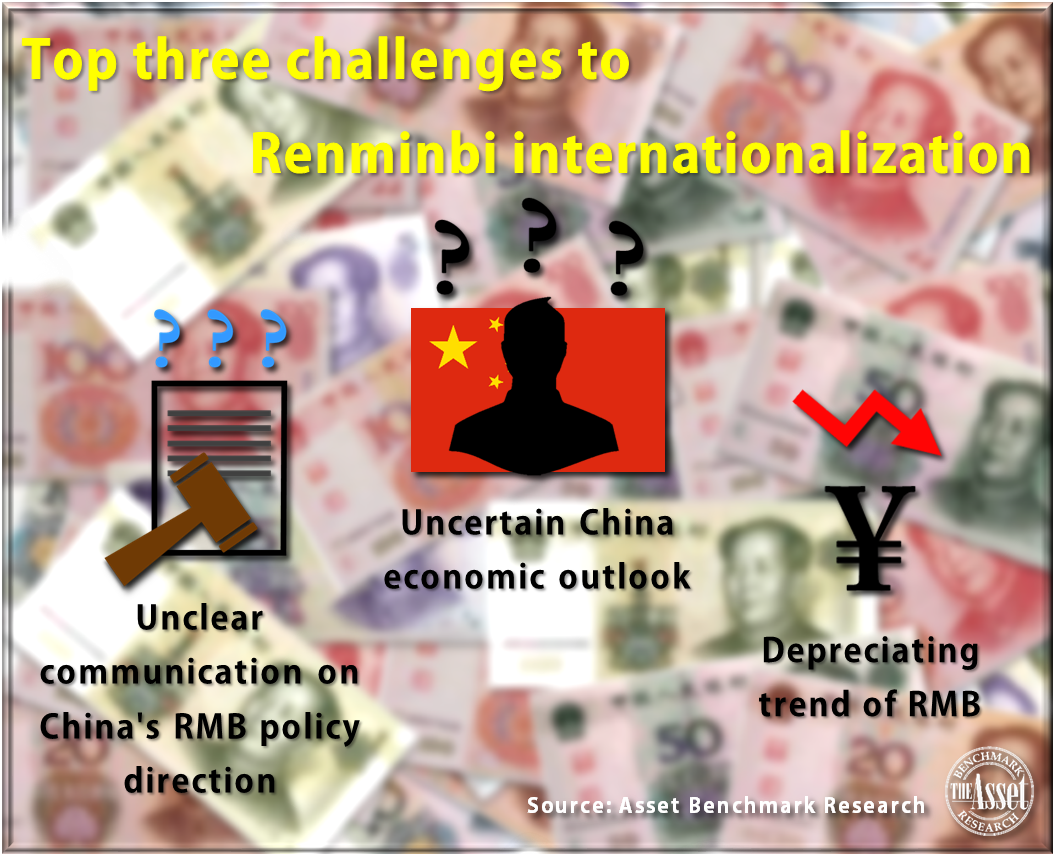Despite the substantial progress that has been achieved towards renminbi internationalization, the currency still faces several challenges that have to be overcome before investors can use it for international transactions.
On October 2016 the Chinese renminbi entered a phase in its internationalization development when it was officially included to the International Monetary Fund’s (IMF) special drawing rights basket of currencies.
It was a coming of age event for the Chinese currency which only seven years prior was being piloted by the People’s Bank of China (PBOC) for trade settlement purposes.
But according to an Asset Benchmark Research survey of companies active in China, around half of the respondents were concerned about the uncertainty Chinese economic outlook. The Chinese economy grew at 6.7% during the Q3 2016 one of its lowest numbers after posting double-digit growth several years ago.

Other problems to renminbi development include clarity in China’s renminbi policy direction and fears over further depreciation of the currency. It wasn’t too long ago that the renminbi suddenly dropped 1.8% in value sending shockwaves around the globe.
Some respondents shared that the reluctance of counterparties to use renminbi played a big factor in their own adoption.
“The main reason why people are not using the RMB [renminbi] is that it’s not internationally accepted by counterparts,” explains a South East Asian-based treasury executive director. “When you go out into trade everybody talks about dollar pricing, dollar invoicing, nobody talks about the RMB pricing or invoicing. So if counterparts or business don’t move in that direction then we wouldn’t create an invoice if a company doesn’t want it.”
In terms of the year-end outlook for the renminbi, over half of the participants are predicting a weaker renminbi relative to the US dollar. Another 30% believe the currency will remain stable for the rest of 2016.
“The appreciation of the US dollar and strong recovery of the American economy will also cause the depreciation of the RMB,” predicts a China-based finance manager.
Nonetheless, the renminbi is currently poised to continue expanding given the importance of China in the global marketplace. Just recently Swift announced that Spain along with several other economies have more than 10% of their direct payments in renminbi.
Additional reporting by Jacky Fung









